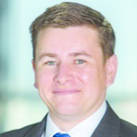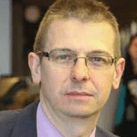6th Risk Summit (2015)

22 Jun 2015
09:00 -21:30
23 Jun 2015
09:00 -16:15
Times are shown in local time.
Open to: Specialists and business managers, including threat specialists, academics, policy-makers, practitioners and advisors

Cambridge Judge Business School
Trumpington St
Cambridge
CB2 1AG
United Kingdom
Risk Testing: Stressing the Boundaries
In June 2015 the Cambridge Centre for Risk Studies brought together leaders and decision makers from businesses, governments, academia and NGOs to explore salient topics in risk management. The summit was held at the University of Cambridge Judge Business School, and was followed by a conference dinner at St John’s College, Cambridge.
This year’s summit, ‘Risk Testing: Stressing the Boundaries’, took the topical theme of applying stress tests to financial institutions, business management, and other operations. The past few years of requiring banks in all the major jurisdictions of the world to perform different sets of stress tests has proved controversial and has prompted questions about the objectives and techniques of stress testing. The conference addressed current thinking about how to develop better stress tests that make our financial services – and our overall society – safer, including learning from how stress tests are used in other disciplines and setting ‘risk tests’ that reflect likelihood and realistic narratives as well as severity benchmarks.
Keynote speakers addressed a number of different viewpoints around stress testing, the issues of understanding systemic risk, and improving the resilience of our society and our economic system. Panels of specialists, including regulators, practitioners, and analysts debated the business benefits of stress testing as a practice.
Speakers included professionals involved in implementing stress tests, regulators who oversee stress tests, academics, commentators, and professionals from a range of different industries.
Registration closed
Registration for this event is closed. If you are interested to hear about upcoming events and other Centre-related news and resources, please join our mailing list.

Principal knowledge partner

Sustaining meeting partner

Meeting partner
Programme partners

Academic collaborators

Programme
Day 1
Monday 22 June 2015
09:00 – 15:00
Special Topics Seminar
15:30 – 16:00
Risk Summit Registration and Coffee/Tea
16:00 – 16:15
Risk Summit Welcome
Dr Michelle Tuveson, Executive Director, Cambridge Centre for Risk Studies
16:15 – 17:00
Plenary Session 1: Globalisation and Systemic Risk
Keynote: The Butterfly Defect: Why Globalisation Creates Systemic Risks and What Can Be Done
Professor Ian Goldin, Professor of Globalisation and Development at the University of Oxford and Director, Oxford Martin School
17:00-18:00
Risk Summit Day 1 Panel
Moderated by: Dr Michelle Tuveson, Executive Director, Cambridge Centre for Risk Studies
- Dr Michael Maran, Chief Science Officer, Catlin Group
- David Harding, Founder and President, Winton Capital Management
- Professor Daniel Ralph, Academic Director, Cambridge Centre for Risk Studies, University of Cambridge Judge Business School & Professor of Operations Research
- Alan Smith, Global Head of Risk Strategy and Chief of Staff, HSBC Holdings
18:00 – 19:00
Drinks Reception at Cambridge Judge Business School
19:00-21:30
Risk Summit Dinner at Emmanuel College
Day 2
Tuesday 23 June 2015
09:00 – 09:30
6th Risk Summit Registration & Coffee
09:30 – 11:00
Risk Summit Welcome & Introductions
Plenary Session 2: Enhancing the Understanding of Risk
Chair: Dr Andrew Coburn, Director of the External Advisory Board, Cambridge Centre for Risk Studies and Senior Vice President, RMS
09:30-10:00 – Historical Perspective of Financial Regulation – Rasheed Saleuddin, Author & Advisor, West Face Capital
10:00-10:30 – When Failure Is Not an Option: Risk & National Security – Brad Pietras, Vice President, Engineering and Technology, Lockheed Martin, UK Lockheed Martin
10:30-11:00 – Thinking the Unthinkable in Stress Tests (or Avoiding the Tyranny of the Historical Regression) – Ian Shipley, Partner, Oliver Wyman
11:00 – 11:30
Coffee Break
11:30 – 13:00
Plenary Session 3: Business Application and Value
Chair: Simon Ruffle, Director of Technology Research and Innovation, Cambridge Centre for Risk Studies
11:30-12:00 – Becoming a Stress-testing Ready Organisation – Dr Aleksander Petrov, Partner, McKinsey
12:00-12:30 – Harnessing the Benefits of Stress Testing: A Regulatory Perspective – Dr Alison Scott, Acting Technical HoD Prudential Regulation Authority, Bank of England
12:30-13:00 – Panel Discussion: Stress Tests and Evidence for Business Value – Moderated by: Alan Laubsch, Director and VP Risk Products, FNA
- Dr Alan Cathcart, Head of Stress Testing Strategy and Policy, HSBC Holdings
- Roger G. Chen, Vice President, Office of Risk Management, New York Life Insurance
- Mia de Kuijper, Chief Executive Officer, Cambridge Global Partners
- Dr Sergey Ivliev, Deputy CEO, Prognoz
13:00 – 14:00
Lunch at Cambridge Judge Business School
14:00 – 16:00
Plenary Session 4: Confronting Risk Testing Challenges
Cambridge-McKinsey Risk Prize Announcement
Dr Sven Heiligtag, Principal, McKinsey & Company
14:00-14:30 – Commodities Perspective of Regulation – Dr Frank Amend, Head of Market Analysis, RWE AG
14:30-15:00 – Shareholder Resolutions for Carbon Risk – Gardiner Hill, Director Carbon Solutions, Group Technology, BP
15:00-16:00 – The “Risk” Debate
Debate motion: This house believes that stress testing is a key enabler to the management of future financial crises.
Chair: Keren Uziyel, Editor, Economist & Country Risk Manager, Economist Intelligence Unit
For the Debate Motion:
- Matthew Grant, General Manager, Model & Data Products, RMS
- Ed Jenkins, Chief Risk Officer, Global Banking and Markets, HSBC
Against the Debate Motion:
- Brad Fischtrom, Managing Director, Enterprise Risk Management, AIG
- Dr Bill Janeway, Senior Advisor, Warburg Pincus
16:00 – 16:15
Summary & Conclusions
Professor Daniel Ralph, Academic Director, Cambridge Centre for Risk Studies & Professor of Operations Research, University of Cambridge Judge Business School
Special topics seminar
09:30 – 10:40
Session 1: The Emerging Risk Landscape
A Multi-Threat View of Risk – Professor Daniel Ralph, Academic Director, Cambridge Centre for Risk Studies
Catastronomics: The Economics of Catastrophes – Dr Scott Kelly, Senior Research Associate, Cambridge Centre for Risk Studies
Identifying & Managing Emerging Risks – Nick Beecroft, Emerging Risks, Lloyd’s
Coffee break
11:10 – 12:20
Session 2: Financial Catastrophe Risk
Understanding Financial Catastrophes – Dr Andrew Coburn, Director of External Advisory Board, Cambridge Centre for Risk Studies
Learning from Historical Financial Crises – Dr Duncan Needham, Director, Centre for Financial History
The Cambridge Model of Banking Contagion – Dr Olaf Bochmann, Research Associate, Cambridge Centre for Risk Studies
Financial Cartography – Dr Kimmo Soramäki, Founder & CEO, Financial Network Analytics
Lunch
13:30 – 14:30
Session 3: Cyber Catastrophe – an Interlinked Systemic Risk
Understanding Cyber Risk– Simon Ruffle, Director of Technology Research and Innovation, Cambridge Centre for Risk Studies
Developing Cyber Catastrophe Scenarios – Eireann Leverett, Research Associate, Cambridge Centre for Risk Studies
Issues of Managing Cyber Risk in Business
End of the research showcase session
Speakers
Nick Beecroft
Head of Emerging Risks & Research, Lloyd’s
Andrew Freeman
Risk Fellow, Cambridge Centre for Risk Studies and Director, Finance Foundation
Sergey Ivliev
Deputy CEO, Prognoz
Ed Jenkins
Chief Risk Officer, Global Banking and Markets, HSBC
Ed Jenkins is Chief Risk Officer, Asia Pacific, Group General Manager at HSBC. Previous roles within HSBC include Global Head of Wholesale Credit and Market Risk, Chief Risk Officer, Global Banking and Market, Global Head of Independent Model Review and Model Risk Governance and Chief Accounting Officer, Global Banking and Markets.
Prior to HSBC, Ed was Global Head of Equity Valuation Group, JP Morgan Chase.

















